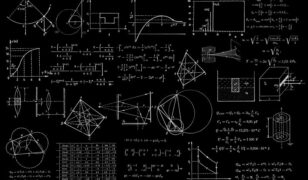On October 16, the Defense Advanced Research Projects Agency (DARPA) posted a submission opportunity for the Non-Escalatory Engagement to reduce Dimensionality (NEED) program. Submissions are due by 4:00 p.m. Eastern on November 13.
DARPA’s Defense Sciences Office (DSO) is issuing a Disruption Opportunity (DO) inviting submissions of innovative basic or applied research concepts in the technical domain of Social Behavioral Science. This DO is issued under the Program Announcement for Disruptioneering, DARPA-PA-20-01. All awards will be made in the form of an Other Transaction (OT) for prototype project. The total award value for each combined Phase 1 base and Phase 2 option is limited to $1,000,000. This total award value includes Government funding and performer cost share, if required, or if proposed.
Current intelligence, surveillance, and reconnaissance (ISR) practices are limited in their ability to address the complexity and ambiguity of urban environments. The complexity is a function of densely populated, densely structured, diverse, and heterogeneous terrain. The ambiguity is due to adversaries blending in among civilian populations and masking acts of planning or executing hostilities within the patterns of everyday urban life. Advances in artificial intelligence (AI) technologies, such as machine vision, show promise towards aiding humans in negotiating this complexity and ambiguity. Yet the dimensionality of the inference problem is too high and the base rate of threats too infrequent for these tools to accurately distinguish among threats and non-threats based solely on passively observed behaviors. As such, human-based inference – replete with cognitive bias and imperfect memory – remains our most reliable method for determining who may be a threat and who is merely going about their day.
The purpose of NEED is to develop a library of Engagements that an autonomous vehicle can take that 1) are non-escalatory or de-escalatory when deployed and 2) help reduce the dimensionality of the inference challenge for determining who may pose a threat to U.S. and allied forces. “Non-escalatory” means the action does not increase tensions between or within the populations. “De-escalatory” means the action decreases tensions between or within the populations.
DARPA requests proposals to develop and test the effectiveness of such Engagements within the Urban Reconnaissance through Supervised Autonomy (URSA)1 Testbed. The Testbed is an environment for developing systems that help human decision-makers (e.g., a BFC) manage the complexity and ambiguity of the ISR challenge in urban environments with perception-enabled autonomous systems that can move autonomously in and around the environment. DARPA measures the efficacy of the whole system as the change in classification accuracy (sensitivity and specificity) compared to an unaided human performing the task passively (e.g., without machine perception and without direct engagement).
Full information is available here.
Source: SAM









